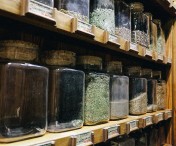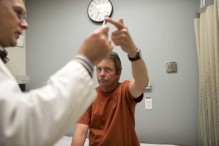Tag: Health
-

GNA Feature on Herbs and Spices: Greece’s Comparative Advantage
In the crisis-stricken Greek capital where austerity has led to the closure of shops and the slack activity of those open, there is a road that still booms with activity. Stretching from Aeolou to Menandrou streets, Evripidou Street hosts an array of spice stores and charcuteries that carry us back to the time of Ottoman-era bazaars. Every…
-

Egyptian oncologist lands on Forbes’ top 30 under 30 list
Egyptian oncologist Yehia Abugabal was recognised by Forbes among their annual 30 Under 30 list, an inspiring collection of the world’s 600 brightest minds (30 people across 20 categories); breakout talents and change-makers across different sectors, from education, to arts, to finance, who stood out in 2016. The 28-year-old physician is the co-founder of the International Cancer Research…
-

First MS treatment to bear Greek signature
The release of the first Greek-patented therapy against multiple sclerosis (MS) is only a matter of time. A long-term and costly venture by a group of four medical researchers, in collaboration with the University of Patras and VIANEX SA, the largest Greek pharmaceutical company in Greece and founded by the Giannakopoulos family, seems to be…
-

Greece among the 10 healthiest countries in the world
You may strive to be healthy by eating well and exercising regularly, but what makes a person live to be 90? How can you increase your life expectancy and live a healthy, happy life? These are all things you can learn from the top 10 rated healthiest countries in the world, according to Samir Becic…